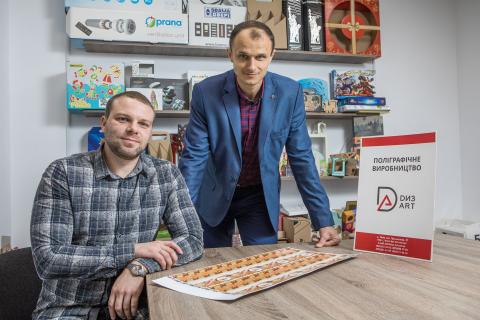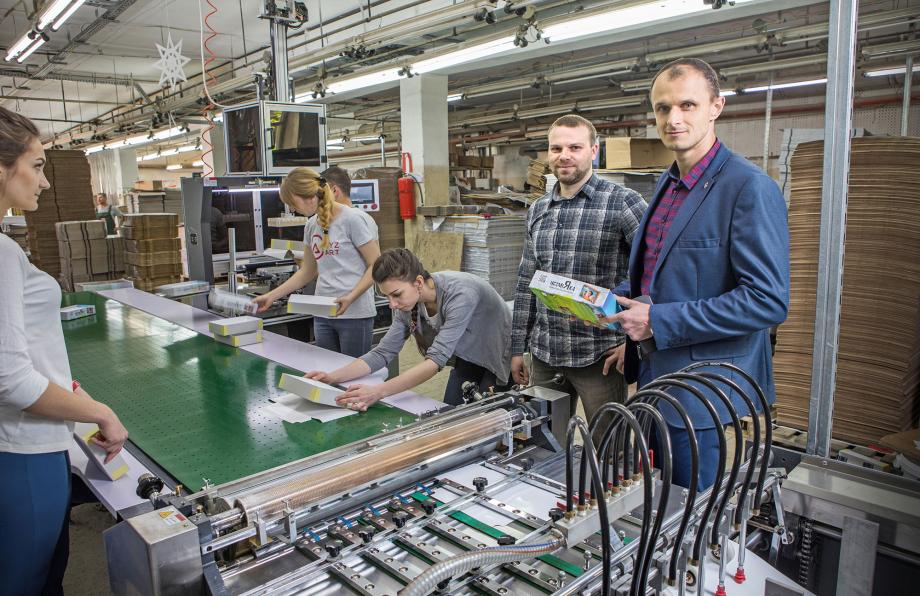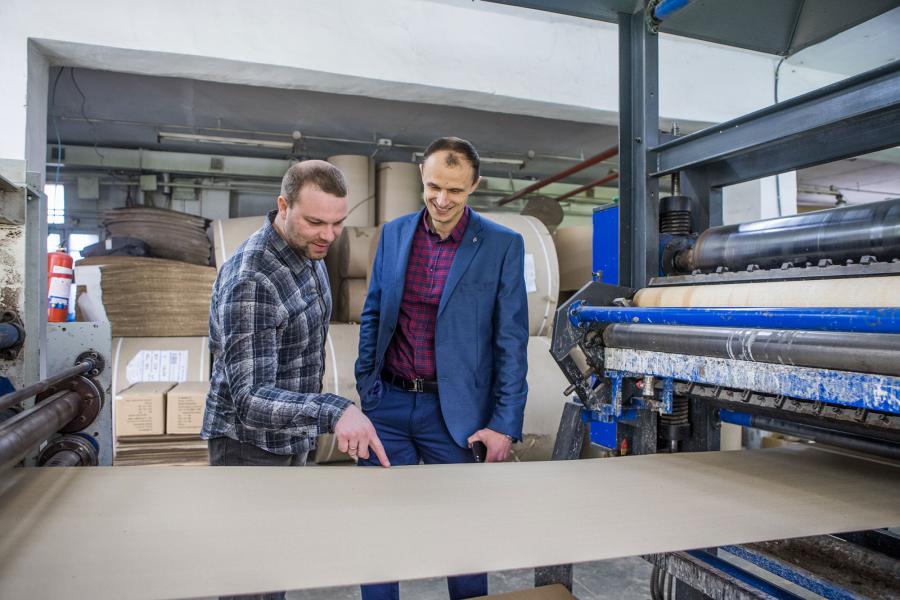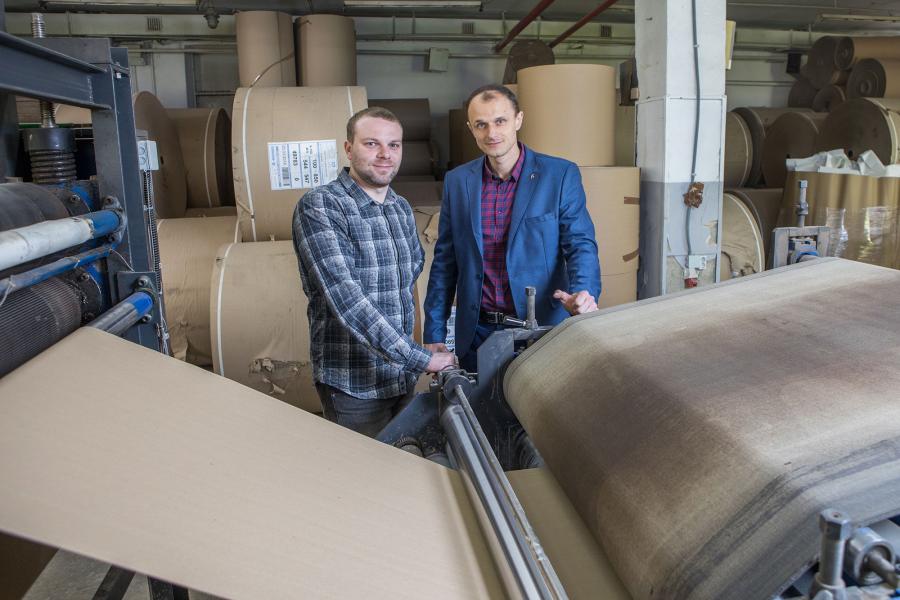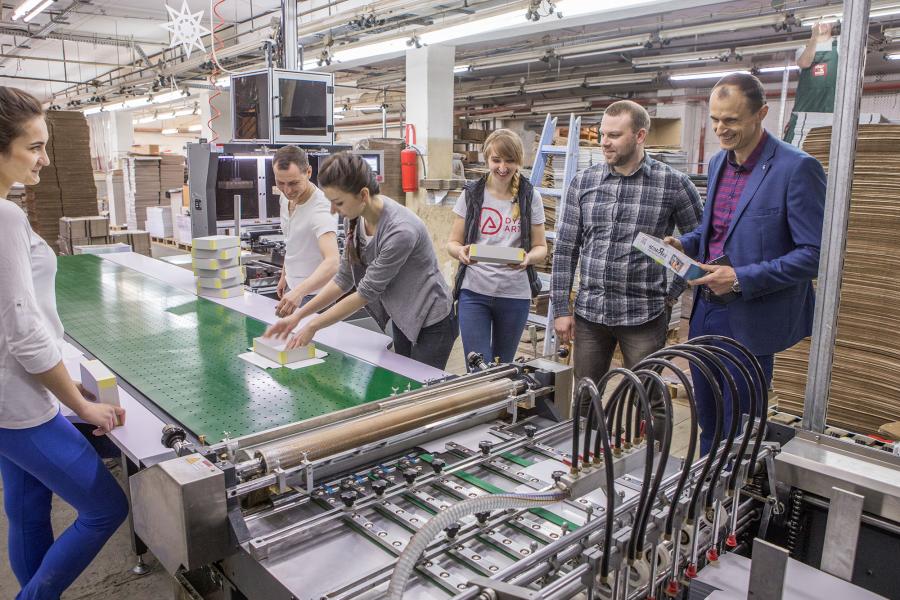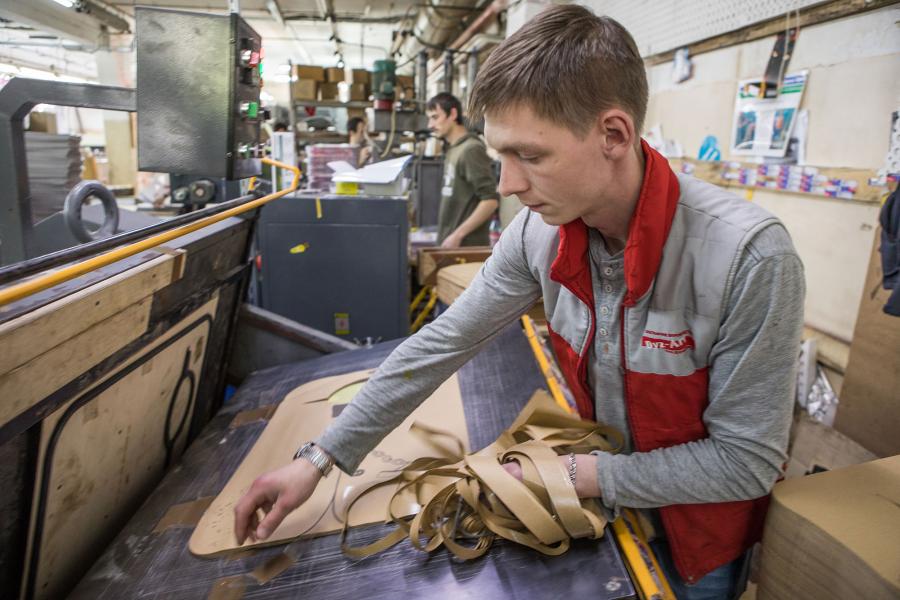Hard work has allowed two Ukrainian businessmen to create a modern printing production. The new equipment will allow them to reach a whole new level
Those who are running away from Ukraine surprise me. They say there are no opportunities here, well there is no better place in the world to achieve your potential!” Businessman Yaroslav Boychuk is enthusiastic when he talks about working in his native country. He knows very well what he is talking about; he has been successfully building his own printing company Dyz-Art for the past 16 years, a company that manufactures boxes, calendars, decorative magnets, board games and other similar products.
Boychuk initially invested $300 in the company. Today, Dyz-Art has an annual turnover of 1.3 million euros, and about 80 members of staff.
Despite the fact that the company is small by Ukrainian standards, it is known not only at the local level, but also among larger companies. The clients of the Lviv company include a national chain of filling stations, Okko, the largest restaurant holding in the country, !Fest, and the German concern Klingspor, which has a manufacturing facility in the Lviv region. The secret of Dyz-Art is to provide services that are not offered by its competitors.
Now the Lviv company is on the verge of a new breakthrough. It is again ready to offer a service that similar companies on the market are not able to provide. Having taken a business loan facilitated by the German-Ukrainian Fund through Kredobank under the EU4Business initiative Dyz-Art invested in modern equipment not available anywhere else in western Ukraine. This will allow the company significantly to expand its range of customers and increase revenues.
Competitive advantages
‘Dyz-Art’ is derived from of two words: ‘design’ and ‘artists’. The fact is that Yaroslav Boychuk’s first business was somewhat associated with art – he used to print posters for local singers and performers. He worked as an intermediary, taking orders for printing posters and placing them in a printing house.
His first serious customer was a cosmetics factory. The factory manufactured perfumes and lipstick and needed packaging for its products. The contract was for $4,000 per month, a considerable amount for a starting entrepreneur.
Not wanting to be dependent on contractors, Boychuk decided to open his own box production. He used his accumulated capital of $300 to buy a special machine for cutting cardboard. The young director did not have much experience, so he learned production in practice, often working together with the frontline employees.
The small company began to expand in 2007, when it was joined by Alexey Mikitko. Dyz-Art borrowed about $10,000 and purchased another modern machine for cardboard cutting from the Bulgarian company Intertrade JCS. This supplier from the EU later became a permanent partner, says Boychuk.
The new equipment immediately became highly sought after. It allowed modern magnets to be churned out for tourists at a low price. And Lviv at that time was beginning to turn into one of the tourist centres of Ukraine. The number of tourists, including from the EU, was growing rapidly. They were very willingly to buy magnets, and the modern Bulgarian equipment allowed ‘Dyz-Art’ to manufacture these products at low cost.
Another business line was the production of board games and puzzles. The firm did not refuse even minor orders from small companies. Over the course of time, such orders outgrew and tested the capacity of the company.
New horizons
Today, in one of the four bright workshops operated by Dyz-Art, not only is the routine work humming along, but also studies into future lines. Several young employees are mastering new equipment that will let the company manufacture premium-quality boxes, but still at a low cost. The equipment has just been installed, says Mikitko proudly, showing off a beautiful, light box. “It looks upscale, doesn’t it?” he asks.
Dyz-Art was able to purchase the new equipment thanks to a loan from Kredobank, which issued it under the joint programme of the GUF and the EU4Business initiative. The loan was for almost 1 million hryvnia. “We thought: let’s take this machine – it makes the boxes that we used to glue by hand,” Mikitko says. Thanks to automation, the work efficiency has increased, and therefore the cost of production falls. “We can stay at the same price range, but perform better,” he explains.
Initiatives such as EU4Business are among the few real opportunities for Ukrainian small and medium-sized business to get a loan at an interest rate of 15% p.a., significantly lower than the average rate in the banking market. With the programme’s help, it is possible to finance the purchase or upgrade of equipment, obtain access to foreign markets, as well as take a micro loan for the development of a small business.
As for Dyz-Art, thanks to the current loan from EU4Business, the company is preparing to open up new horizons of development. The equipment purchased with the help of the EU will allow Dyz-Art to stay ahead of its competitors and to explore new prospects, the businessmen believe. “There are a lot of customers who want to, but cannot afford this box,” Mikitko says, “but they will buy these boxes when the price falls.” And therefore the earnings of this small company will become even higher.
******************************
Dyz-Art received an investment loan from Kredobank, in the framework of the German-Ukrainian Fund and KfW’s SME Finance Facility, supported by the European Union as part of its EU4Business initiative. The Facility seeks to stimulate local currency lending for SMEs in Ukraine who cannot afford the high costs of borrowing.
Author: Katerina Shapoval
The article was prepared for the EU4Business initiative.

